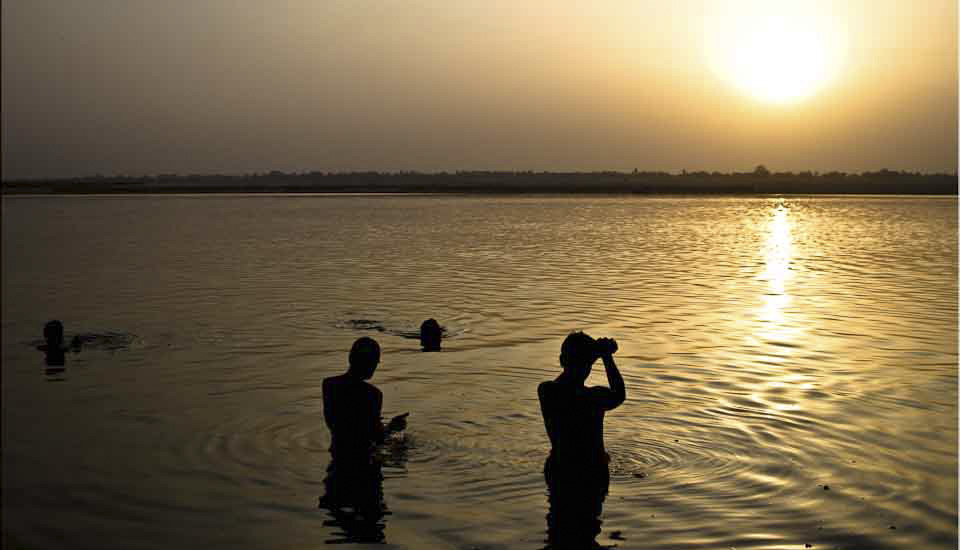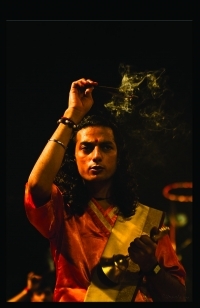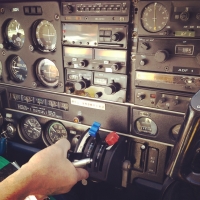.jpg)
Toilet Shelter on the Mongolian Steppes
It was a make-shift construction of rough planks around a hole that wasn’t half deep enough … but it was welcome! (Phone6)
It is hard to know what to say about a day on which one of the high points is a rough-hewn three-sided toilet shelter. For most of our bumpy drive across the Mongolian steppes, we made do with rocks to squat behind. Cross-country travel in Mongolia is not for the faint-hearted – or for those who are weak of bladder!
Truth be told, that toilet shelter wasn’t all it was cracked up to be: the open side faced the road, and the pit within it really was not deep enough… But, I love the picture it presents against the sweeping plains.
It was my second day of bumping across the vast Mongolian landscape in a Russian UAZ (Ulyanovsky Avtomobilny Zavod) four-wheel-drive vehicle organised by Within the Frame and local guides G and Segi. According to Google Maps, the day’s drive from Kharkhorin to Tariat is about 280 kilometres; that they estimate a travel time of four and a half hours gives you some indication of the state of the roads!
Add to that, the fact that Air China still had no idea where my bag might be and I was wearing bits of borrowed clothing, and you get some of the bedraggled picture. Lets just say, I arrived at the end of the day like James Bond’s martini: well shaken.
.jpg)
Sheep on the Roadway
UAZs may be well suited to navigating Mongolia’s roads, but they don’t afford the passengers much of an outlook on the surrounds. I amused myself on the long drives by trying to capture small snatches of views through the front windscreen as we rattled and bumped along. (iPhone6)
.jpg)
Steppes and Highway
The first part of our day was on paved ‘highway’. The plains and the skies go on forever… (iPhone6)

Eurasian Black Vulture (Aegypius Monachus)
Huge vultures were thick on the ground at our first stop. They didn’t let me get very close before flying off – this photo is heavily cropped.

Mongolian Ibex Canyon Statue
I had to make do with a statue of a male Mongolian Ibex – we never saw a real one.

Tsetserleg
We were travelling with our own cook, which meant our meal-stops were anywhere we pitched the meal-tent. This was a mixed blessing: it meant we had great meals, but we didn’t stop in most of the towns we passed along our way, and only saw them from the UAZ windows as we skirted by.

A Nomad’s Ger in the Steppes
We made an afternoon stop at a nomad’s camp …

Inside the Ger
… and were invited in for dried yogurt.

Dried Yogurt
Tasting a bit like hardened tofu, the dried yogurt pieces were strung up around the inside of the ger.

Nomadic Mongolian Patriarch

Pouring Out Homemade Vodka
Inside the richly decorated ger, we sample fermented mare’s milk, and buy a litre of homemade vodka poured into a water bottle. That plastic bottle got misplaced in one of the UAZs. Days later, one of our group took a large swig, thinking it was her water. Her choking gasp could be heard for miles!

Milk and the Foal
Back outside on the windy steppes, the nomad couple go back to their chores of milking the mares and moving their young.

Young Foal
The young horses are tied to a ground rope where they can feed.

Vultures on the Steppes
Once again, we come across cinereous vultures; once again they fly off as anyone nears them.

Cinereous Vultures (Aegypius Monachus)

View from the Truck Into the Larch Forest
Too soon, we are back in our four-wheel drives. (iPhone6)

Chuluut River Gorge
Our next stop was at the beautiful Chuluut Gorge, …

Chuluut River Gorge
… about 50 kilometres short of our day’s destination.

UAZs in Chuluut Gorge
The autumn-yellow of the larch trees provides a colourful backdrop for our UAZs.

Autumn Larch Trees
Larch trees are the dominant species in Mongolia’s remaining boreal forest.

Larch Tree Trunk

Autumn Larch Cones
Although they are conifers, …

Wind in the Larch Trees
… larches are deciduous: in autumn their needles yellow, then fall off.

Chuluut River Gorge

View from the Truck – Rain
Our break at the Gorge over, we drove out of the forest and into the rain… (iPhone6)
When vultures and outhouses are the high-points of your day, you know it has been challenging.
 But, our cook Yagaanaa produced another terrific meal – including tiramisu for desert!
But, our cook Yagaanaa produced another terrific meal – including tiramisu for desert!
That, and a glass of scotch, and I was ready for the next day –
Almost.
Pictures: 23September2016






























.jpg)


Mongolia is on my short list of places to visit, and fish. Taimen, Amur trout and lenok fly fishing is supposed to be incredible. Plus, wonderful scenery to capture with a camera. Too bad you didn’t get a chance to visit with the locals in their villages. Learned a new word – cinereous. The vultures look huge, but what sustains them? The whole landscape looks sparse in terms of scavenging opportunities. I would love to have a hi-res copy of your Chuluut River Gorge photo (the first one) for my desktop.
Hi Selim – so nice to hear from you! A copy of the file you asked for is winging its way to your mailbox as we speak; I hope its the one you wanted.
The vultures seem to travel in packs: I suspect there is plenty of food from the herds of sheep and cashmere goats, as well as indigenous herbivores. The birds seemed very healthy!!
All the best, Ursula
[…] the long hours in the vehicle from Kharkhorin (see: From Kharkhorin to Tariat), I was happy to explore the soggy lake foreshore upon our arrival late in the afternoon, and again […]
[…] said it before: Cross-country travel in Mongolia is not for the faint-hearted – or for those who are&nbs… The Russian UAZ (Ulyanovsky Avtomobilny Zavod) four-wheel-drive vehicles that […]
[…] About 30% of Mongolians are nomadic or semi-nomadic, spending at least their summers in their portable ger housing close to their animals’ grazing lands, and living much as they have for hundreds of years. The herds live off the land, and the nomads live off the milk, meat and skins of their livestock. Fermented mare’s milk – airag – is popular, and milking the horses is one of the many daily activities (see: From Kharkhorin To Tariat). […]